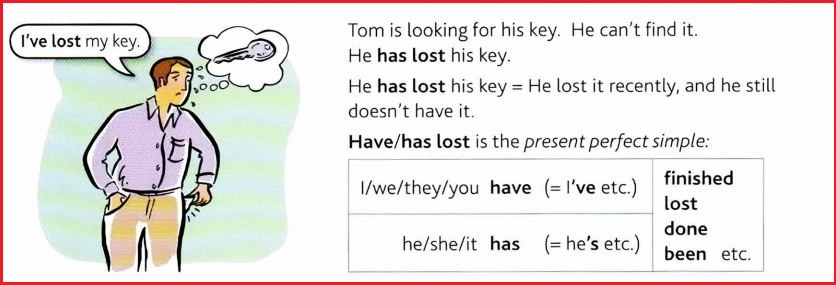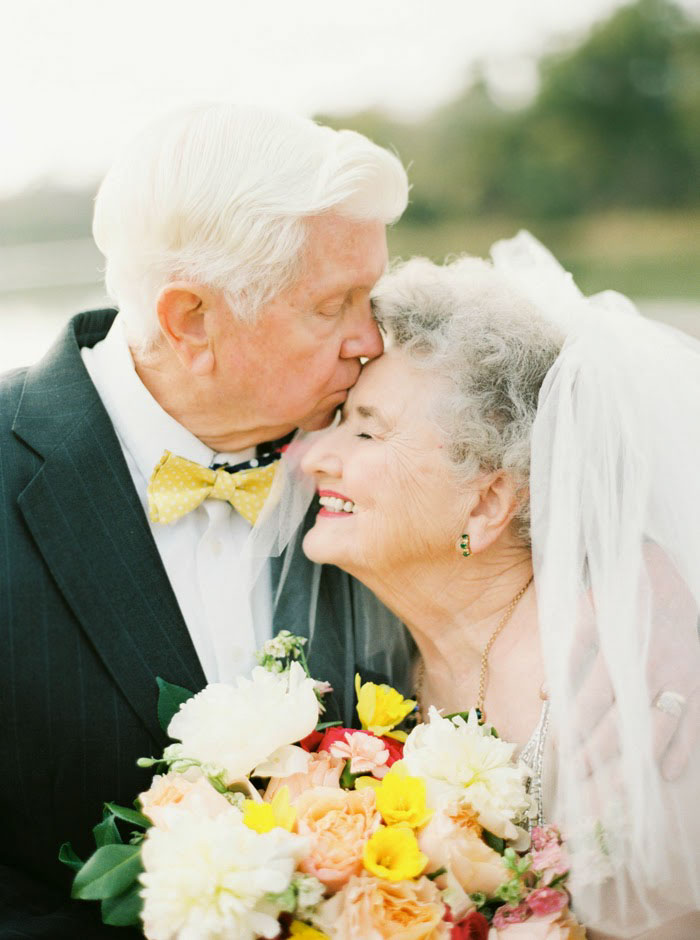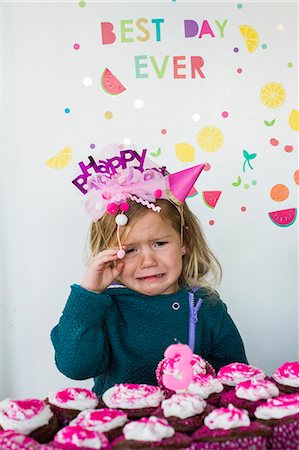Present perfect
Join EnglishTopVN to immediately learn important knowledge about the present perfect tense with formulas, signs, and exercises with detailed answers. Besides, you should practice the present perfect tense to consolidate your knowledge applicable to all tests.
1. Concepts
Present perfect tense used to describe an action or event that started in the past, continues to the present and may continue in the future.

Example of present perfect tense
2. Formula
2.1. Affirmations
S + have/ has + PII.
- S = I/ We/ You/ They + have
- S = He/ She/ It + has
For example:
- I have graduated from my university since 2012.
- We have worked for this company for 4 years.
- She has started the assignment.
2.2. Negative sentence
S + haven’t/ hasn’t + PII.
- haven’t = have not
- hasn’t = has not
For example:
- We haven’t met each other for a long time
- .Daniel hasn’t come back his hometown since 2015.
- I haven’t started the assignment.
2.3. Question
Q: Have/Has + S + PII?
A: Yes, S + have/ has.
No, S + haven't / hasn't.
For example:
- Have you ever travelled to Vietnam? // Yes, I have./ No, I haven’t.
- Has she arrived London yet? // Yes, she has./ No, she hasn’t.
- Have you started the assignment?
3. How to use
➣ The action has been completed up to the present time, with no mention when it occurred.
For example:
-
I have done all my homework.
-
He has lost my key.

He has lost my key
➣ Actions that started in the past and continuing at the present.
For example:
-
They’ve been married for nearly fifty years.
-
She has lived in Tokyo all her life.

They’ve been married for nearly fifty years
✎ NOTE: We can use Present perfect continuous tense for cases like example 2.
For example:
-
She has been living in Tokyo all her life.
-
It’s been raining for hours.
➣ Describe actions that have been done before and are still being done now
For example:
-
He has written three books and he is working on another book.
-
I’ve played the guitar ever since I was a teenager.

I’ve played the guitar ever since I was a teenager
➣ Using a clause with “since” indicates when something started in the past:
For example:
-
They've stayed with ussince last week.
-
I have worked here since I left school.

They’ve stayed with us since last week
➣ An experience up to the present time (usually using the adverb ever)
For example:
-
My last birthday was the worst day I’ve ever had.
-
Have you ever met George? Yes, but I’ve never met his wife.

My last birthday was the worst day I’ve ever had
➣ About an action in the past but important at the time of speaking
For example:
-
I can’t get my house. I’ve lost my keys.
-
Teresa isn’t at home. I think she has gone shopping.

Teresa isn’t at home. I think she has gone shopping
✎ NOTE: In some cases, we use past participle state of the verb TO BE: BEEN as one past participle form of the verb GO.
In English tenses, "present perfect tense" and "simple past tense" are two tenses that many people easily confuse in their usage. Therefore, please pay careful attention to using English tenses properly in context!
4. Identification signs
➣ Each item of English grammar will have different identifiers so that it can be applied appropriately. With present perfect, in the sentence you will have the following words and structures to recognize:
– just, recently, lately: recently, recently
– already: Already
– before: before
– ever: used to
– never: never, never
– yet: not yet (used for negative sentences and questions)
– for + N– period of time: within (for a year, for a long time, ...) for example: for 3 months: within 3 months
– since + N– milestone/time point: since (since 1977, since March, ...)
– so far = until now = up to now = up to the present: until now
– in/ for/ during/ over + the past/ last+ time: in …. Over (For example: During the past 5 years: in the past 5 years)
– Superlative + present perfect tense
This is the first (second/only…) time + present perfect tense
For example:
- This is the first time I have eaten Banh mi in Vietnam.
- This is the best champaign I have ever drink.
- This is the most delicious cake I have ever eaten.
- This is the most memorable experience I have had in my life.
- All day, all night, all my life

